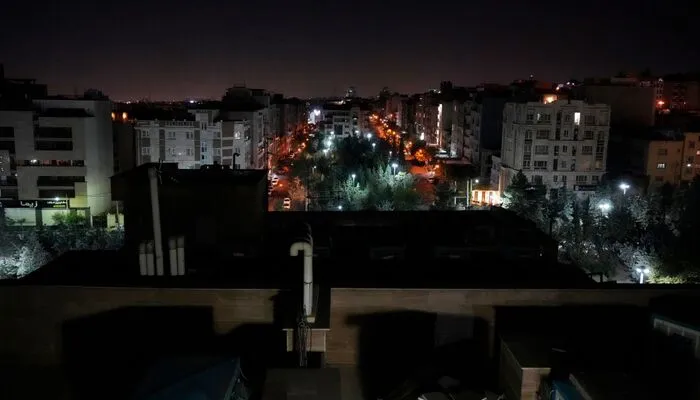World leaders have called for restraint following Israel’s pre-dawn airstrikes on military targets in Iran, responding to Iran’s recent missile attack on Israel. The airstrikes, which Israel describes as a defensive measure, come as tensions soar across the Middle East, with militant groups backed by Iran, such as Hezbollah in Lebanon and Hamas in Gaza, already engaged in ongoing hostilities against Israel.
Global Reactions and Calls for Restraint
The United States, briefed in advance of the strikes, urged both nations to avoid escalation. The White House National Security Council emphasized that Israel’s response focused solely on military sites, in contrast to Iran’s initial missile attacks aimed at Israel’s populated areas. “We aim to accelerate diplomacy and reduce tensions,” said a White House spokesperson, urging Iran to halt attacks to avoid further escalation. President Biden expressed hope that the strikes mark an end to recent escalations, noting, “It looks like they didn’t hit anything but military targets.”
Other world leaders echoed calls for restraint. British Prime Minister Keir Starmer, addressing the Commonwealth Summit, said that Iran should not respond militarily and urged all sides to avoid further escalation. Meanwhile, a United Nations spokesperson condemned all acts of escalation, calling for an immediate end to violence.
Read: WHO Alarmed by Gaza Hospital Crisis Amid Ongoing Military Operations
Middle East Nations Respond to Tensions
Regional nations reacted strongly. Saudi Arabia condemned Israel’s airstrikes, calling them a violation of Iran’s sovereignty and international norms. The Saudi Foreign Ministry urged against further escalation, joining Egypt, which called for de-escalation through a ceasefire in Gaza as a pathway to restoring regional stability. Turkey sharply criticized Israel, claiming its actions “brought our region to the brink of greater war” and called on the international community to hold Israel accountable.
Domestic Reactions in Israel and Iran
In Israel, opposition leader Yair Lapid criticized the government’s strategy, arguing that Israel should have struck Iran’s “strategic and economic targets.” Meanwhile, in Tehran, officials downplayed the impact of the strikes, reporting limited damage and dismissing the attack as a mere escalation. While Iran claimed the right to self-defense, its military suggested that a ceasefire might be a priority, especially to protect civilians in Gaza and Lebanon. This carefully phrased response signals that Iran may seek to avoid further conflict escalation.
Read: WHO Alarmed by Gaza Hospital Crisis Amid Ongoing Military Operations
Historical Hostilities Continue
Israel and Iran have remained adversaries since Iran’s 1979 Islamic Revolution. Israel views Iran as its greatest regional threat due to Iran’s support for militant groups, repeated calls for Israel’s destruction, and its nuclear program. In this ongoing shadow war, Israel has reportedly conducted cyberattacks and assassinated Iranian scientists, targeting key nuclear installations.
The latest airstrikes have intensified long-standing hostilities and highlight the ongoing risk of a broader regional conflict. Leaders across the globe continue to urge diplomacy and restraint to prevent further escalation.
Follow us on Google News, Instagram, YouTube, Facebook,Whats App, and TikTok for latest updates
